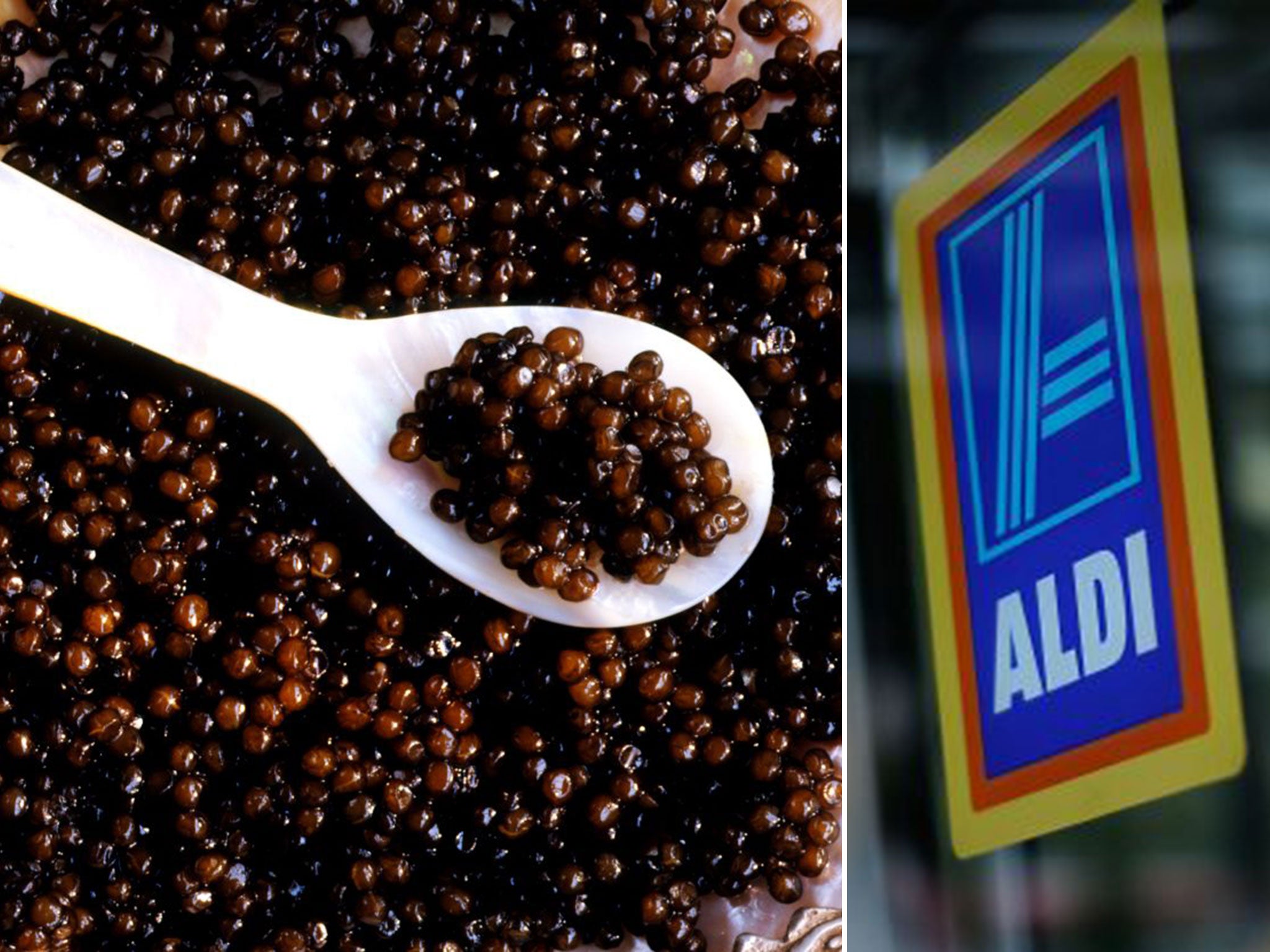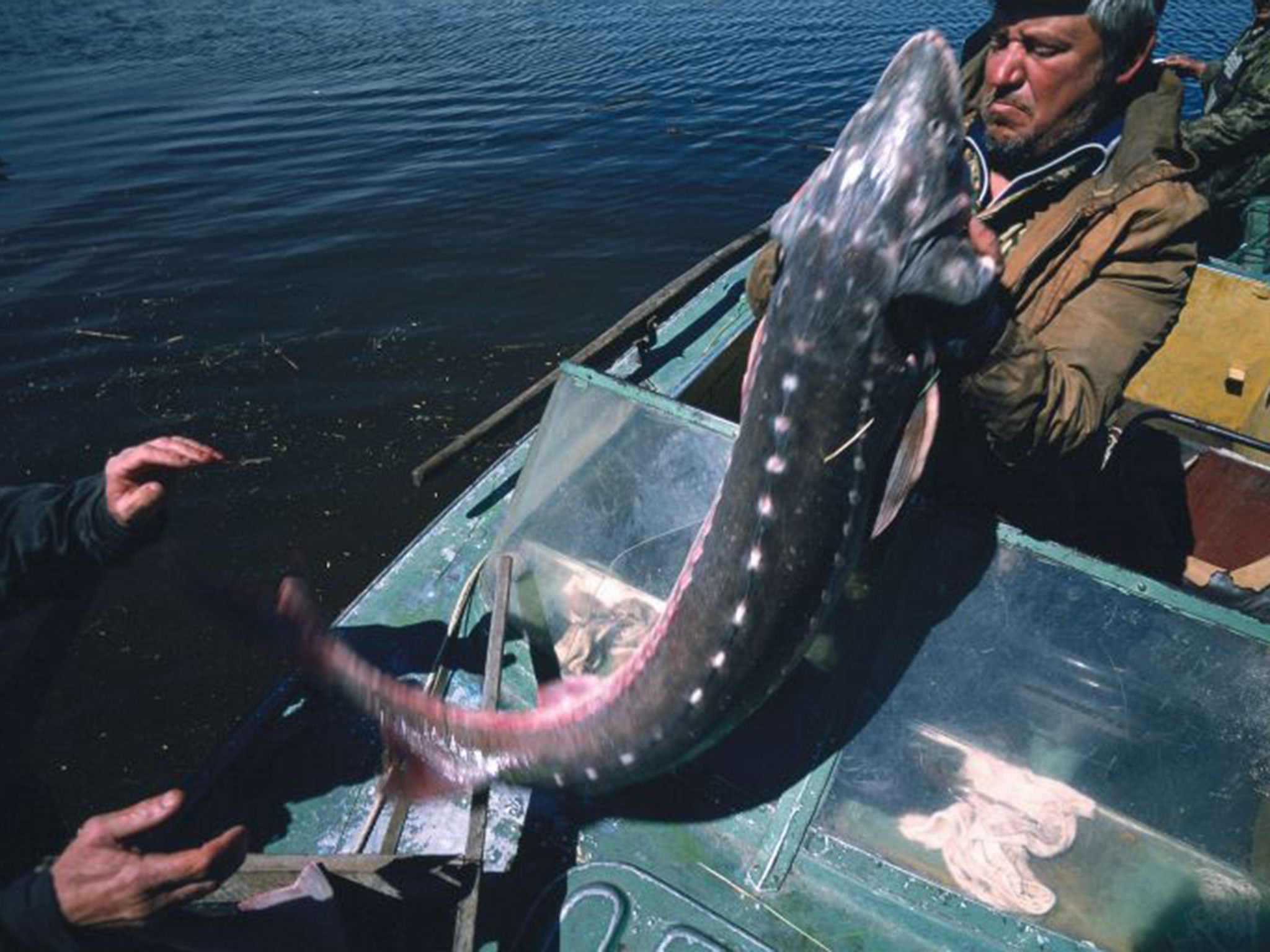Aldi forced to drop 'Beluga' from its caviar
An 'Independent on Sunday' investigation revealed that the product originated in China

Your support helps us to tell the story
From reproductive rights to climate change to Big Tech, The Independent is on the ground when the story is developing. Whether it's investigating the financials of Elon Musk's pro-Trump PAC or producing our latest documentary, 'The A Word', which shines a light on the American women fighting for reproductive rights, we know how important it is to parse out the facts from the messaging.
At such a critical moment in US history, we need reporters on the ground. Your donation allows us to keep sending journalists to speak to both sides of the story.
The Independent is trusted by Americans across the entire political spectrum. And unlike many other quality news outlets, we choose not to lock Americans out of our reporting and analysis with paywalls. We believe quality journalism should be available to everyone, paid for by those who can afford it.
Your support makes all the difference.It was a fishy tale that turned out to be exactly that. The discount supermarket Aldi has been forced to change the name of its cut-price "beluga" caviar after an Independent on Sunday investigation discovered none of the famed sturgeons were used in making the product.
The German firm had claimed in promotional material for its Christmas campaign that, alongside dressed crab, goose and other luxury items, it would sell a 20g tin of "beluga" caviar for £9.99, in contrast to Fortnum & Mason, which sells a 30g tin of farmed beluga caviar for £215.
However, beluga caviar can consists only of roe from the Huso huso sturgeon, native to the Caspian and Black Sea, according to the World Health Organisation's international food standards. Aldi's caviar, which goes on sale in December, is a product using amur and kaluga sturgeon, both native to the Amur river in China. The supermarket has now removed all mention of "beluga" from its labels and will call the product "specially selected caviar".
Serious past concerns have been raised about Chinese sturgeon exports which have been found to contain traces of leucomalachite green, a substance administered in Chinese aquaculture processing and heavily regulated by all EU countries. It is banned in all food for human consumption in the US and UK because of its potentially carcinogenic properties.
Aldi's quality assurance director, David Roos, has said that all the supermarket's products on sale "are safe and legal along with procedures to ensure that products are tested to ensure their ongoing compliance to our requirements".
On the samples of its caviar, seen by The IoS, Aldi's caviar has correctly labelled China as the country of origin. An Aldi spokesperson said the supermarket had removed any reference to beluga in its product because the company believed in "transparency".

"We have been made aware of a number concerns relating to the World Health Organisation's guidelines on distinguishing between the many different types of caviar," said the spokesperson. "Having conducted a number of enquiries, including with our supplier, we have determined that the labelling of our caviar as Amur Beluga may lead to confusion among customers. As a result, we have taken the decision to remove this particular description from our packaging. The product will be called Specially Selected Caviar and the packaging will clearly state that our caviar comes from a cross-breed of amur sturgeon and kaluga sturgeon. Aldi believes in transparency and ensuring our customers have access to a full range of information on all of our products."
In another triumph, allotment-holders in Watford have won a landmark judicial review to stop their 118-year-old site from being turned into homes. Their fight, celebrated in The IoS's Dig for Victory campaign, marks the first time courts have stopped developers. Allotment group spokeswoman Sara Jane Trebar said: "This is a huge victory, not just for allotment holders but for the average person who feels let down by their councils."
The Communities Secretary, Eric Pickles, has twice tried to turn the 128 plots into properties. The Communities minister, Stephen Williams said: "It is now up to the council whether they wish to put forward the application for reconsideration."
Join our commenting forum
Join thought-provoking conversations, follow other Independent readers and see their replies
Comments